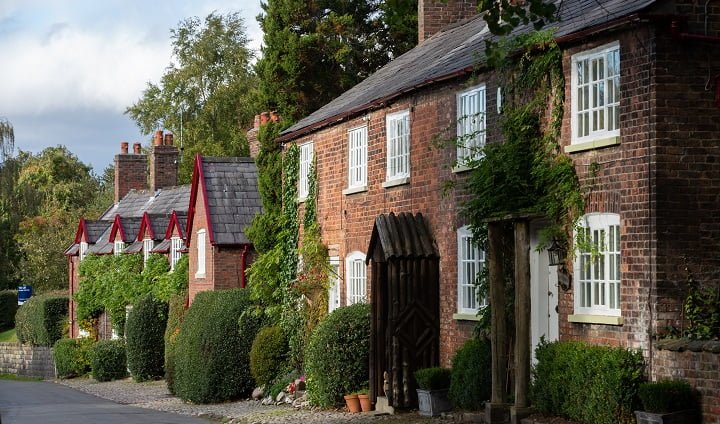Drug and Alcohol Rehab in Staffordshire
Quick Links for help with addiction in Staffordshire
- How Do I Know If I Need Rehab in Staffordshire?
- What is Inpatient Addiction Treatment in Staffordshire?
- How Do I Tell My Family I’m Going to Rehab in Staffordshire?
- Will Your Insurance Cover Rehab in Staffordshire?
- Can I Force My Loved One to Go to Rehab in Staffordshire?
- What Happens When I Arrive At Rehab in Staffordshire?
Substance abuse can be a very scary thing to both the user and their family.
Moreover, things get progressively worse as substance addiction becomes dependence.
However, thanks to the efforts of dedicated addiction recovery workers, those struggling with drugs and alcohol can find help wherever they live.
If you need help in Staffordshire, our addiction recovery helpline is a good place to start.
Get access to the best drug and alcohol rehabs in Staffordshire today by calling us on 0800 088 66 86
What are the Drug & Alcohol Statistics in Staffordshire?

According to multiple sources, news articles and studies of drug and alcohol use in Staffordshire, substance misuse and overuse is becoming more and more of a problem for the county.
Numbers of drug poisonings have doubled in the last decade, with deaths from such being at an all-time high of 59 just this year alone.
Like many other cities and counties across the country, experts believe this spike in drug misuse cases and substance-related deaths could be down to the Coronavirus pandemic.
This could be true – addiction treatment was decidedly harder to obtain during the lockdowns, and people at home with nothing else to do were resorting to substances in their downtime.
Below, we provide some statistics about alcohol and drug use in Staffordshire:
| Drug and Alcohol Statistics in Staffordshire (2015-18) | Data |
| Percentage of adults who drink more than the recommended 14 units of alcohol a week in Staffordshire | 27.4% |
| National average of adults who drink more than the recommended 14 units of alcohol a week in Staffordshire | 22.8% |
| The percentage of binge drinking on their heaviest drinking day in Staffordshire | 22.4% |
| Alcohol-related adult admissions during 2019/20 | 6,200 |
If your drug or alcohol addiction was worsened by multiple lockdowns and you want the help of a drug and alcohol rehab in Staffordshire, call us today on 0800 088 66 86
Is Addiction a Disease?
We understand that there is a negative stigma that surrounds addiction and those that use substances like drugs and alcohol.
However, here at Rehab Recovery, we treat addiction for what it is: a disease.
Addiction is caused by chemical changes in the brain, causing the body to become dependent on whichever substances you have used.
This makes it that much harder to resist the urge to use again, that much harder to refuse substances when they may be offered by peers, and that much harder to withdraw – no matter how much you may want to.
Addiction is not considered a ‘choice’ or ‘moral failing’ on behalf of the addiction sufferer – rehab is about treating the disease of addiction.
You have not failed in any way if you are experiencing an addiction, nor should you be ashamed or embarrassed to admit you are struggling to cope with one.
Similarly, there is no shame if you have attempted to withdraw before but have then returned to substance use.
In order to receive the help you need, you first need to understand this and recognise that your addiction is not your fault – but it is your job to now work hard to recover from it.
You can read more about the disease of addiction here.
To find out for yourself how this approach to addiction is used at rehabs in Staffordshire, call our team today on 0800 088 66 86
What Are the Six Key Parts of Addictive Behaviour in Staffordshire?
A study by Daria J. Kuss defines addiction criteria as ‘mental preoccupation, neglect of personal life, escapism, mood modifying experiences, tolerance, and concealing the addictive behaviour’.
What Impacts Can Drug and Alcohol Addictions Have on a Person in Staffordshire?

However, a substance addiction can also have long-term effects that can severely damage your health and wellbeing.
For example, there were 5,608 deaths in the UK during 2020 that were directly caused by alcoholic liver disease. [1]
These long-term effects can be managed or reversed if you seek professional help early on.
Below are some of the most common impacts that a drug or alcohol addiction can have on a person in Staffordshire:
- Physical health problems such as cirrhosis, increased risk of stroke, cancer and brain damage
- Higher risk of developing complications from illness due to a weakened immune system
- Depression, anxiety, schizophrenia and other mental heath disorders
- Paranoia, hallucinations and delusions
- Increased risk of contracting HIV, hepatitis or a sexually transmitted infection
- Difficulty falling or staying asleep as well as frequent nightmares
- Legal troubles such as being arrested
- Financial troubles such as debt
- Strained relationships with family and friends
- Poor performance at work leading to job loss and unemployment
- Shorter lifespan due to the risk of overdose, suicide or disease
As you can see, a drug or alcohol addiction can impact all aspects of your life and can even end it prematurely.
How Do I Know If I Need Rehab in Staffordshire?

If you’re concerned about your relationship with drugs or alcohol, this is probably a sign that you could benefit from professional help.
While you can check for the signs of addiction within yourself, this takes a lot of introspection and it can be difficult for many people to objectively observe and analyse their own behaviours.
Instead, it can be helpful to think about the impact that drugs and alcohol are having on your life.
Have you tried to stop using substances, only to find yourself back to the same behaviours again?
Do you struggle to function if you are unable to use drugs or alcohol for any reason?
Have you experienced negative consequences due to your substance use, but you continue to repeat this behaviour?
One study found that only 1.4% of people who are struggling with a substance addiction actually receive professional treatment [2] – don’t put off seeking help just because you don’t think your addiction is severe enough.
What is Inpatient Addiction Treatment in Staffordshire?
Inpatient rehab in Staffordshire is a safe and controlled medical environment where patients can recover from a drug or alcohol addiction.
This option is suitable for anyone with a substance use disorder but may be more effective for those with a severe addiction as there is 24/7 medical monitoring and no way to access drugs or alcohol.
Inpatient rehab is a way to recover from addiction without distractions, triggers and temptation.
It removes you from your life and gives you the opportunity to build new habits and behaviours.
The main aspects of inpatient rehab are detox, individual and group therapy sessions, relapse prevention and aftercare planning.
The number of people in the UK seeking addiction treatment at inpatient rehab is falling, with just 13,214 people attending in 2021 – a 13% drop compared to the previous year. [3]
What is Outpatient Addiction Treatment in Staffordshire?

Image above: Elderly women in a rehab in Staffordshire
While residential rehab may be the first thing that springs to mind when considering addiction treatment in Staffordshire, outpatient rehab is also a very effective option.
Outpatient rehab differs from residential rehab because patients do not need to live onsite at the treatment facility.
Instead, they continue to live at home while attending regular counselling sessions at the clinic.
The level of commitment can vary depending on the severity of your addiction.
Some people may be required to attend for several hours each day, while others may attend a few times a week. [4]
If you meet the below criteria, outpatient addiction treatment in Staffordshire may be suitable for you:
- Low risk of experiencing severe withdrawal symptoms
- A safe and secure living environment with minimal triggers
- The ability to get to and from counselling sessions regularly
- Enough motivation to complete the outpatient treatment programme
- A strong support network of close family and friends
- No past relapses during or immediately after treatment
Patients undergoing outpatient rehab will receive the same quality of care as those in residential rehab.
They will undergo a supervised medical detox, receive counselling sessions and be assisted in preparing for life outside rehab.
Will Rehab in Staffordshire Cure Me of My Addiction?

Image above: Two women hugging at a drug and alcohol rehab in Staffordshire
While you can recover and live a healthy life after battling a substance use disorder, the truth is that rehab cannot cure you of your addiction.
The ability to cure a disease means that it will be permanently removed from your life.
It is not possible to do this with addiction – you will always be vulnerable to the effects of drugs and alcohol in the future.
This is partly due to the fact that addictive substances can cause physical and permanent changes to your body and brain chemistry, making it more likely that you will experience compulsions and cravings in the future if you begin to use them again. [5]
However, addiction can be effectively managed with the right support and treatment, which you will find at drug and alcohol rehab in Staffordshire.
Does Drug and Alcohol Rehab for Teens Work in Staffordshire?

Teenage addiction can be devastating, with growing brains damaged by substance use and the risk of developing a physical or mental health condition increased.
Since 2014, teenage drug use has increased by over 40%. [6]
This is a worrying trend that could lead to huge consequences in years to come.
It can be helpful for teenagers to recover alongside people of their own age.
This will help them form bonds and relate to one another, setting the groundwork for a strong support system.
Education is also prioritised alongside recovery at drug and alcohol rehab for teens, allowing patients to continue with their schooling and feel supported.
Family therapy is a huge focus, with parents often attending counselling sessions alongside their teenager and learning how to best support them with their recovery.
All members of the family can benefit from learning healthy communication techniques and discovering how to improve the dynamic of the household.
Can I Recover From Addiction Without Professional Help in Staffordshire?
This is due to several factors, primarily the physical changes in the brain that result from addiction.
This disorder affects the brain’s reward system which is what causes you to crave drugs or alcohol, and the frontal cortex is also impacted making it more difficult to control impulses and judge a situation correctly.
In 2021 there were 4,859 deaths recorded in the UK due to drug poisoning. [7]
It can also be dangerous to withdraw from drugs or alcohol by yourself, as severe withdrawal symptoms can be deadly.
There is no way to tell how your body will react to a detox and as a result, it is recommended that you seek help at a professional drug and alcohol rehab in Staffordshire.
How Do I Tell My Family I’m Going to Rehab in Staffordshire?

Behind every person with an addiction is a family, and this disorder can cause immense stress to these loved ones.
It is estimated that 1 in 10 children are living with an adult with a drug or alcohol addiction, with the majority of these children aged under 5 years old. [8]
You may feel nervous about telling your family that you’re going to rehab, but it’s important to remember that they will likely be relieved that you are seeking help in Staffordshire.
Below are some helpful tips for telling your family that you’re going to rehab in Staffordshire:
- Choose a private place where you can talk without worrying about being overheard, and allow enough time for an open and honest conversation to take place
- Be prepared to answer questions. Your family will likely have a lot of questions about your addiction and the process of rehab, and keeping them informed will increase their trust levels
- Be as honest as possible. This can be difficult if you feel a lot of shame about your addiction, but it can help you to better connect with your family and alleviate a lot of the burden
- Make sure to validate their feelings and do your best to understand their perspective. Your family have likely struggled a lot with your addiction and they may need some time to process everything
This conversation will likely be intense and emotionally draining, but it can be very helpful to your recovery in Staffordshire.
Having the support of your family will help you to feel less alone, and involving them in your treatment can also change any negative family dynamics that are preventing you from recovering in Staffordshire.
Can I Lose My Job If I Leave to Go to Rehab in Staffordshire?

Your employer does not have the right to fire you for seeking help for your addiction at rehab.
However, there are grey areas in the law which means it is not impossible for this to happen.
Due to the stigma of addiction, people in Staffordshire have lost their jobs after leaving to go to rehab.
However, things are slowly improving when it comes to addiction support in the workplace.
The Employment Act 1996 prohibits any discrimination towards employees due to their alcohol use, although you can still be fired if you are found drinking alcohol at work in Staffordshire.
Employers should educate themselves on the prevalence of addiction in the UK, the impact this has on productivity in the workplace and how effective rehab can be at treating this disorder.
It’s thought that in England alone there are 589,000 people who are dependent on alcohol [9], and many more who will be drinking at high-risk levels.
If these people received help and support, their work performance will likely increase and they will be more productive in the workplace in Staffordshire.
Will Your Insurance Cover Rehab in Staffordshire?

You may be able offset some of the costs of rehab by claiming through your health or employee insurance.
Many insurance policies now cover rehab stays in Staffordshire, so it can be beneficial to read through your insurance policy to learn what you are entitled to.
You may be able to cover an inpatient rehab stay in Staffordshire, an outpatient rehab stay or another type of treatment programme.
It’s important to note that some insurance providers will only cover one trip to rehab in your lifetime, while others will only cover your stay if you complete the entire programme in Staffordshire.
Although studies have found that a longer stay at rehab in Staffordshire is most effective, many insurance providers will only cover a short stay.
As alcohol-related harm costs the UK £21.5 billion a year while illicit drug-related harm costs £10.7 billion [10], more funding could actually save money in the long-term.
Can I Force My Loved One to Go to Rehab in Staffordshire?
It is estimated that around 1.5 million adults in the UK are affected by a relative’s drug use. [11]
If you are one of them, you’ll know how frustrating it feels to watch someone you love struggle with a condition that you know is treatable.
Attempting to force someone to go to rehab is not usually effective.
Many people struggling with addiction do not realise that they have a problem, so they see no reason to go to rehab.
They may go simply to placate you, and will not put in the work required to recover as they genuinely do not believe that their relationship with drugs or alcohol is unhealthy.
As soon as they leave the clinic in Staffordshire they will begin to use substances again.
The only way to recover from an addiction is to accept and acknowledge the problem, and have a desire and motivation to change.
Even though your loved one may not want help right now, things may change in the future.
The best thing to do is to be there for them and let them know that you will help when they are ready in Staffordshire.
Why is the Focus on Abstinence at Alcohol Rehab in Staffordshire?
If you are abstaining from something, it means you are not using it at all.
When it comes to abstinence in the world of addiction, it means not using drugs, drinking alcohol, or partaking in addictive behaviour.
Though some find abstinence as a form of treatment to be too difficult to maintain or too harsh, it is oftentimes a necessary part of a recovery journey.
For dangerous drugs and severe alcohol use disorders, abstaining from the substance is essential to ensure that no further damage is done to your body or brain.
Other ways to treat addictions include harm reduction or moderation management, which differs from abstinence’s seemingly all-or-nothing approach.
Though these treatment routes can be successful for some individuals, abstinence has proven to be a better option for those who are truly dependent and will not be able to make simple life changes in order to stop using.
Addiction is a disease and a chronic illness, and sometimes these small changes or determination alone are not enough to stop substance abuse.
Abstinence ensures that recovery is reached safely and quickly.
Experts have agreed that abstinence is always the safer and more effective route to addiction recovery in Staffordshire.
Find out how a rehab in Staffordshire can help you achieve abstinence by calling our team today on 0800 088 66 86
Why is Drug & Alcohol Rehab in Staffordshire is Not Always For Everyone?

Is rehab the right choice for you?
Even though rehab can benefit anyone who is suffering with an addiction, if you have other options available, rehabilitation may not be the right place for you.
If you are able to recover using different methods, such as through Alcoholics Anonymous, Narcotics Anonymous Staffordshire, Cocaine Anonymous, other mutual support groups or via a home detox, then this will most likely be recommended to you as the best route to take.
There is also to ensure that rehabilitation centres can be reserved for the most severe cases of addiction, and those that are unable to recover using alternative methods.
If you become violent either to yourself or your loved ones when intoxicated, then you will need to attend rehab.
If you are experiencing a dual diagnosis and your mental health issues are interfering with your attempts to recover, or are causing suicidal thoughts, then you will also be referred to rehab in Staffordshire.
Rehab will also be recommended for those who are using high-class drugs or are drinking over 30 units each day, and those that have other problems that would deem them unable to perform a home detox or seek help elsewhere.
If you think rehab in Staffordshire may not be the right choice for you, discover what your options are by calling our team on 0800 088 66 86
What Happens When I Arrive At Rehab in Staffordshire?
One of the first things that will happen when you arrive at rehab in Staffordshire is that you will be subjected to a search.
Staff will search your belongings for any prohibited items such as weapons, drugs and alcohol and may also conduct a body search.
Next is an assessment, which gives your medical team the opportunity to learn more about your addiction and any other co-occurring disorders.
This may involve physical tests such as blood tests, a psychiatric evaluation and other examinations.
Once you have been cleared to enter the rehab clinic, you will be shown around by a member of staff and assigned to a room where you can begin to settle in.
It can take some time for you to adjust to life at rehab, as the rules and level of supervision will likely be a lot more than you are used to.
You will be given clear guidelines to follow as well as a daily schedule, which will help you to settle down into a routine.
Can I Leave Rehab in Staffordshire At Any Time?
If you are over 18, you can voluntarily leave rehab at any time of your choosing.
There is nothing stopping you from walking out the door and returning home, but take a moment to consider why you want to leave rehab early.
It’s normal to feel uncomfortable and overwhelmed at rehab in Staffordshire – it’s a completely new environment and you are recovering from a physical and/or psychological addiction.
It can be a difficult time, but it won’t last forever.
Feeling homesick is understandable too, particularly if you have travelled a distance to get to Staffordshire.
Visits and phone calls from friends and family may help you to feel better.
If there are particular reasons for disliking rehab such as problems with another patient, speak to your counsellor and medical team.
They will be able to help.
Research has found that around 30% of patients drop out of rehab early [12], but your chances of recovery are much higher if you stay and complete the programme.
Will My Rehab Programme in Staffordshire Be Confidential?

If you’re concerned about your family, friends or employer learning about the details of your treatment, you will be reassured to learn that your rehab programme in Staffordshire will be entirely confidential.
You are entitled to privacy regarding your personal medical information, and this includes addiction treatment.
GDPR restrictions prevent staff at rehab from sharing your personal details with third parties.
The only way someone else will be able to access your records is if you give consent for this to happen or they are acting on your behalf in a legal capacity. [13]
What Happens in the 28-Day Rehabilitation Treatment Programme?

After you have been assessed and have settled into the clinic, you will begin a detox.
This is often the most dreaded part of the recovery process, but it is necessary in order to break the physical hold of drugs or alcohol.
Over 7-10 days, you will slowly withdraw from all addictive substances.
Your medical team will give you a personalised plan and will monitor you the entire time to ensure your safety, and prescribe medication if you need it.
You will likely feel exhausted and ill during this time, and may experience withdrawal symptoms such as nausea and tremors.
The main focus of drug and alcohol rehab in Staffordshire is counselling, and most patients receive at least three weeks of therapy sessions.
This may involve group therapy, family therapy and individual therapy.
You can expect to attend one to two counselling sessions per day, and this is where you will develop mental techniques to help you stay sober.
It’s estimated that 9% of adults are currently living in recovery after battling a drug or alcohol addiction [14], and you could be one of them after attending rehab.
What are the Alternatives to Rehab in Staffordshire?
Professionally supported drug and alcohol rehab is one of the best ways to recover from addiction, but it certainly isn’t the right choice for everyone.
If you do not fit the immediate criteria to be referred to rehab, don’t panic! You have plenty of other options available to you, and rehab is far from the only route to recovery available.
One of these options is to recover by yourself at home.
Though this can sound daunting, you are not completely alone, and your at home detox will be guided by a medical professional to ensure your safety and recovery.
If you are deemed able to perform a detox at home, the appropriate medication is posted out to you, and you can begin when you are ready.
A team member at the outpatient clinic will likely check in with you daily via phone call to make sure you are doing well.
Another route to recovery is through fellowship groups.
By attending a group such as Alcoholics Anonymous (AA) or Narcotics Anonymous (NA), you can recover at your own pace, with the help and support of others like you. These focus on the concept of a higher power.
You will have the chance to feel like a part of a large support network, you will stay on track with the help of the popular sponsorship programme, and you will be able to celebrate when you hit a milestone of sobriety.
In mutual support groups such as these you are also likely to follow the famous 12-step programme, which has been referred to by many who have used it as a ‘way of life’.
Learn more about the many alternative addiction treatments in Staffordshire that are open to you, call us today on 0800 088 66 86
Should I do Private or NHS Rehab in Staffordshire?

Deciding on what to do and where to go in order to recover from your addiction is a huge task, and requires a lot of research to ensure you do not jump into treatment that is not suitable for you.
One of the many choices you will need to make along the way is whether to opt for private treatment or council-funded treatment.
Private rehabilitation programmes ensure you are looked after by highly-trained professionals, undergo a safe and medically-guided detox, and receive the best possible care in a top-rated facility.
You will most likely also have the same therapist throughout your recovery journey, which can make things much easier during such a hectic time.
Recovering in the privacy of rehab in Staffordshire means there will be fewer distractions when compared to home recovery, and you will receive personalised therapy and counselling that will aid in relapse prevention and help you avoid triggers after rehab.
Further support and treatment is available even after you leave rehabilitation, and referrals to other clinics can be made for you if needed.
Of course, there is one downfall with choosing private treatment, and it is one that many avoid rehabilitation because of the cost.
With NHS funded rehab treatment, there is generally no expense, which is what draws many people struggling with addictions to this widely available and close-to-home option.
However, choosing this route also brings with it many disadvantages, such as a slow admission process, a chance of having to attend different therapists and clinics, no important referrals and extremely broad and non-personalised care.
This is why, even though private treatment and rehabilitation in Staffordshire can be more expensive, it is most definitely worth it and is sometimes necessary if you wish to reach your recovery goals in the most effective and safe way.
Free and NHS-run addiction treatment services in Staffordshire include:
1. CAMHS South Staffordshire
Address: The Bridge, St George’s Parkway Stafford, ST16 3NE
Telephone: 01785 221665
Website: https://camhs.mpft.nhs.uk/south-staffordshire
2. STARS (Humankind)
Address: 10 Browning St, Stafford, ST16 3AT
Telephone: 01785 270080
Website: https://humankindcharity.org.uk/service/staffordshire-treatment-and-recovery-service/
3. Turning Point Stafford
Address: 22 The Cresent, Stafford, ST16 1ED
Telephone: 01785 243712
Website: https://www.turning-point.co.uk/find-a-service.html#/73
4. North Staffordshire Combined Healthcare
Address: Lawton House, Bellringer Road, Trentham, ST4 8HH
Telephone: 07739 775202
Website: https://www.combined.nhs.uk/our-services/substance-misuse/
You can also reach out to organisations such as the NHS Foundation Trust, Change Grow Live, Alateen, Al-Anon or SMART Recovery.
For guidance choosing between private and NHS rehab in Staffordshire, call our team on 0800 088 66 86
What is Narcotics Anonymous in Staffordshire?

If you need help and support with a drug addiction, considering turning to Narcotics Anonymous (NA).
This is a free service that allows you to meet with other people in recovery and support each other.
You can share your experiences, thoughts and feelings in a safe and confidential space.
NA meetings are held regularly and no matter where you are in the world, there will be a meeting somewhere close by.
If you are unable to attend meetings in-person here in Staffordshire, you can log into an online meeting instead.
According to their own figures, 46% of members said they had not relapsed since joining NA. [15]
NA is free to attend and all you need is the willingness to change your behaviour and a genuine desire to recover.
AA does not research or educate about addiction – they are solely focused on helping people to achieve sobriety.
What is Smart Recovery in Staffordshire?
Self-Management and Recovery Training (SMART) is a community of support group meetings based on the principles of cognitive behavioural therapy (CBT) and mindfulness to help people recover from a drug or alcohol addiction.
Meetings are held once a week in all participating countries including the US, UK, Australia and Canada.
SMART Recovery members in Staffordshire follow the SMART 4-Point Programme, which is an empowering way to change behaviour and recover from addiction.
Several studies have found that SMART Recovery is effective at helping people change their behaviours and recover from a drug or alcohol addiction. [16]
Why Choose Residential Rehab in Staffordshire?

By choosing a residential rehab programme for your primary source of treatment, you are opting for one of the most effective ways to reach a successful recovery.
When it comes to residential rehabilitation, all of your needs are met.
There is 24/7 care and attention from highly-trained and highly-attentive staff, there is a wealth of treatments available for all aspects of your addiction, and there is constant monitoring of your progress to ensure you are on track at all times.
Residing at the rehabilitation centre for your recovery journey means you have no further access to substances whilst you are withdrawing, meaning you have no way of relapsing.
It can also mean that you have the necessary detachment from your possibly toxic or unhelpful home environment.
Though there are other options for treatment in rehab, such as outpatient treatment, residential rehab routes are the only ones that can offer all of these benefits with very few disadvantages.
All the support you need is available if and when you need it, and you have the time and privacy to be able to put your recovery first.
If you wish to give yourself the best chance of reaching a substance-free life via a drug and alcohol rehab in Staffordshire, get in touch today on 0800 088 66 86
How Can You Determine the Severity of Your Addiction?
To ensure you are being referred to the right places, receiving the most suitable care and treatment, and are being given the best chance of reaching a full recovery, you will need to undergo a few simple tests.
Some of these tests are in place to find out how severe your substance use is and if it can be classed as an addiction, whilst others are here to figure out which treatments will be more effective for you.
AUDIT, Staffordshire
One of the tests you will likely encounter during your enquiry is an AUDIT.
An Alcohol Use Disorder Identification Test allows professionals to quickly assess the seriousness of your situation and determine what type of facility or care should be recommended to you.
AUDITs include 10 questions based on your alcohol intake, your dependency on alcohol, and any consequences you have experienced as a result of your drinking.
Your answer to each question will be on a scale of 0-4, and each answer will be added up at the end of the AUDIT to provide you with a final score.
A score of 20 or more will indicate that you are dependent on alcohol, and are in need of a specialist referral to a drug and alcohol rehab in Staffordshire.
ASAM, Staffordshire
Another way that your addiction will be tested is using the six dimensions of the ASAM criteria.
Created by the American Society of Addiction Medicine, the criteria give professionals a clear way to see what your treatment needs are, and how intense your treatment needs to be.
The six dimensions are:
- Acute intoxication and withdrawal potential
- Biomedical conditions and complications
- Emotional and behavioural conditions and complications
- Readiness to change
- Relapse and continued use potential
- Living environment
Using these dimensions, we can take a look at your past experiences with withdrawal and relapses, your physical and mental health history, your motivation to recover, and how your home situation could impact your recovery journey.
Additionally, you can use the CAGE Questionnaire which will further help you to decide whether you have an alcohol addiction. You can also research the DSM-5 guidelines for more information and guidance.
If either of these tests have made you think that you could benefit from drug addiction treatment or alcohol addiction treatment in Staffordshire, call our team today on 0800 088 66 86
What is an Intervention?

An intervention is an act of purposefully involving yourself in a problematic situation, with the intent to improve the situation or help find a solution.
When it comes to addiction, you may feel the need the have an intervention for a loved one who is experiencing the impact of an addiction, but is refusing to recognise their need for help.
With the help of Rehab Recovery, you could have an intervention for your affected friend or family member with the help of a highly-trained professional interventionist.
An interventionists can help guide your loved one towards the right choice of attending a drug and alcohol rehab in Staffordshire, and can support your family along the way.
The interventionist assigned to your family will help you fully prepare for intervention as well as guide you on what to do in both scenarios; your loved one either accepts the help offered or does not.
Successful interventions find out how determined a person is to stop.
This can be measured with the “5 A’s” – Ask, Advise, Assess, Assist, and Arrange.
They will stay with you until your family member agrees to seek help for their addiction.
For guidance on hosting an intervention successfully in order to convince a loved one to attend rehab in Staffordshire, call our team on 0800 088 66 86
How Much Does Rehab in Staffordshire Cost?
The average prices of various addiction treatment and rehab services in Stafford is:
A 10-day detox in Staffordshire:
Single occupancy room: £3,000 – £6,000
Multiple occupancy room: £2,000 – £4,000
A 28-day rehab programme in Staffordshire:
Single occupancy room: £8,000 – £12,000
Multiple occupancy room: £6,000
A home detox in Staffordshire:
Around £1,500
It should be reiterated that these are average prices, and specific costs will vary based on your needs, your preferences and the facility in question.
For a more specific answer to the potential costs of your rheab stay in Staffordshire, call us today on 0800 088 66 86
How Can I Choose the Right Drug & Alcohol Rehab in Staffordshire?

Choosing the right rehabilitation facility for you is an incredibly important part of your journey.
As not every rehab is the same, you will first need to consider what you want to gain from your time in rehab, and what your specific goals are for recovery.
You can then research these needs and specifications to see which facilities will be able to fulfil these goals, and therefore are likely to be the most beneficial to your journey.
You should also look for rehabilitation centres that already have an established, successful, and well-reviewed history. Good reviews from past clients are a quick and easy way to find out more about a rehab and the ‘behind the scenes’ of the treatment there.
Your comfort is also a key part of your recovery.
After speaking to a few different treatment facilities, you may feel more comfortable and safe with one over the others – this is a good indicator of a suitable rehab.
For help finding a drug and alcohol rehab in Staffordshire, call us today on 0800 088 66 86.
What is a Detox?
A detox is the process of allowing your body to recover from the effects of whichever substance or substances you have used.
With continual use of many drugs or alcohol, the body begins to become accustomed to the presence of the substance, eventually leading it to become so dependent that it shuts down if it does not receive it.
This is what creates withdrawal symptoms when you do not use the substance for a short period of time.
During a detox, you are either cut off completely from the substance you use, or your intake is slowly tapered down over the course of a few days, depending on what it is you have become dependent on.
Withdrawal symptoms are managed with medications, or simply with patience and time.
Soon the body begins to adjust to the lack of the substance and starts to make up for the missing chemical itself – which is when withdrawal symptoms begin to subside.
A detox is often necessary if you wish to recover from your use of drugs or alcohol, and has to take place before any other treatment – such as therapy – can begin. For more severe withdrawal you will need a medically-assisted detox (such as heroin withdrawal).
Long-term substance abuse can lead to complications such as siezures, wernicke encephalopathy, delirium tremens and hepatitis – especially when dealing with alcohol withdrawal syndrome.
In order to help with these alcohol withdrawal symptoms you may be prescribed Librium or Chlordiazepoxide to help manage. These are more commonly needed for physical withdrawal.
To start your recovery journey with a fully supervised detox at a drug and alcohol rehab in Staffordshire, call our team today on 0800 088 66 86
How Long Does Rehab in Staffordshire Last?
The average amount of time spent in rehab is around 28 days.
This is the usual length of a full rehabilitation programme, and is enough time for most clients to experience a detox, attend the necessary therapy sessions, and prepare for their eventual return to life after rehab.
However, every rehab journey is different, and whilst some may be able to leave after a 7 day detox period, some will inevitably require more time to recover.
Don’t be worried if you are one of these people. Recovery is still very much possible, no matter how long it takes.
Oftentimes, focusing on the end of the journey rather than on where you are in the moment can have a negative impact on your recovery goals.
To get a more personalised prediction of how long your time at rehab in Staffordshire will take, give us a call on 0800 088 66 86
What is Heroin Rehab in Staffordshire?

Heroin is a powerfully addictive drug made from morphine.
It can be injected, snorted, sniffed, or smoked, and sometimes even mixed with other substances to create more dangerous versions of the substance.
Heroin gets to work very quickly as soon as it enters the body, and is known to cause an instant and pleasurable ‘rush’ for those using it.
This high doesn’t last however, and is soon followed by short term effects such as a dry mouth, itching, nausea and vomiting, and a heavy feeling in the limbs.
Long term side effects of continued heroin use can include:
- Insomnia
- Damaged veins (if you inject the substance)
- Infections
If heroin has impacted your life and you wish to be free from it, there is help available.
In a drug and alcohol rehab in Staffordshire, you will be able to safely withdraw from heroin and recover fully with the help of highly-trained staff members and medical professionals.
Begin your recovery from heroin addiction with the help of a drug rehab in Staffordshire by calling us on 0800 088 66 86
What is Cocaine Rehab in Staffordshire?
Cocaine is a highly addictive stimulant created from the leaves of a plant found in parts of South America.
It is most commonly seen as a white powder, but it is also often cut with other substances that may change its appearance, or used in rock crystal form and referred to as ‘crack’.
Cocaine increases dopamine levels and, instead of allowing the excess dopamine to be recycled back as it normally would be, the substance stores this higher amount of the chemical.
This stops the nerve cells in this area from communicating as they usually would, and is what makes cocaine use so easily addictive.
With prolonged use of cocaine, users can experience severe paranoia, malnourishment and an extreme loss of weight as a result.
Depending on how the substance is used it can also cause a loss of smell, decaying of the bowels, respiratory problems and a high chance of contracting dangerous bloodborne diseases from dirty needles.
There is no time to waste when it comes to a cocaine addiction.
If you believe you have a problem and need help, do not hesitate to get in contact today by phone or email.
There are many proven methods of therapy that can aid in your recovery goals, but you have to take the first step.
Begin your recovery from cocaine addiction with the help of a drug rehab in Staffordshire by calling us on 0800 088 66 86
What is Cannabis Rehab in Staffordshire?
Cannabis is the most used drug after alcohol and tobacco, and its popularity is only increasing as time goes on.
It is a drug made from the leaves (or stems, seeds, and flowers) of the cannabis sativa or indica plant, and is known to cause drowsiness, an insatiable appetite, headaches, nausea, mood swings, impaired mental functions and hallucinations.
With continued use of cannabis – though it is often considered not to be an addictive drug – it is possible for an addiction to occur.
If a person suddenly were to stop using cannabis after a heavy period of use, they could experience symptoms of withdrawal such as insomnia and a loss of appetite.
Although there are far fewer physical dangers to using cannabis than there are with other forms of drugs, cannabis still has the power to negatively impact your life.
The substance can cause poor performance at school or at work, financial problems or even the loss of friends and family members.
At rehab we also offer services for addictions such as:
- Substance Use Disorder
- Opioid Use Disorder
- Ketamine Addiction
- Crack Cocaine Addiction
- Codependency
- Cocaine Dependence
- Buprenorphine Addiction
- Cannabis Use Disorder
- Gambling Addiction
- Benzodiazepine Addiction
- Binge Drinking
- Behavioural Addictions
Begin your recovery from cannabis addiction with the help of a drug rehab in Staffordshire by calling us on 0800 088 66 86
What is Alcohol Addiction?

Also known as alcohol use disorder (AUD), alcohol addiction is a chronic relapsing disease that can wreak havoc on your life.
People with this disorder are unable to control their alcohol use despite negative effects and consequences.
Their drinking becomes compulsive and they can become both physically and psychologically dependent on this substance.
Alcohol addiction exists on a spectrum and can be moderate or severe.
The NHS advises that both men and women should not drink more than 14 units of alcohol per week, and that these units should be spread over several days rather than one sitting. [17]
A unit of alcohol may be smaller than you think – it is the equivalent of half a pint of low to normal-strength beer or a single small shot of spirits.
Many people in Staffordshire with an alcohol addiction do not seek help and may be secretive about their drinking behaviours, so it can be difficult to know if there is a problem.
What Are the Signs That An Alcohol Addiction is Present in Staffordshire?

Alcohol is responsible for approximately 3 million deaths a year worldwide [18], so knowing what to look for could save your life.
Common signs of an alcohol addiction include:
- Frequently appearing intoxicated
- Withdrawing from friends and family
- Not keeping up with responsibilities at work, school or home
- Drinking alcohol despite negative effects to health, employment, finances or well-being
- Trying to stop drinking alcohol but being unable to
- Frequently craving alcohol
- Losing control over alcohol consumption, often drinking more than intended
- Experiencing withdrawal symptoms when not drinking alcohol
- Spending a lot of time drinking and recovering from alcohol
- Feeling like alcohol is needed in order to function
- Attempting to hide alcohol use from friends and family
- Developing a tolerance to alcohol and requiring larger amounts to get the same effect
- Drinking alcohol in dangerous or inappropriate situations, such as before driving or while at work
If you notice any of these signs in yourself or someone you know, take steps towards seeking professional treatment at a drug and alcohol rehab in Staffordshire.
What Happens if I Drink Alcohol Every Day in Staffordshire?
Drinking effects your brain and body, and the more frequently you consume alcohol, the more harm.
Jurgen Rehm when studying the causes between alcohol use and disease found that the higher the volume of alcohol consumed by a person, the higher their chances of health complications or death.
Residential Alcohol Rehab Vs. Outpatient: Which is Better?

When choosing between residential alcohol rehab and outpatient rehab in Staffordshire, it can be helpful to weigh up the benefits of each option before making a decision.
Some of the benefits of inpatient rehab are listed below:
- No possibility of accessing drugs or alcohol while in treatment
- Opportunity to meet other patients and form a support system
- A safe way to recover, with 24/7 medical monitoring
- Suitable for severe or complicated cases such as co-occurring disorders
- Patients are removed from a potentially unhealthy home environment
- A scheduled and more ordered lifestyle, helping patients to develop healthy routines
Inpatient rehab is beast suited to those with more severe or complicated addictions that require specialised treatment, while outpatient rehab can be effective for people who need a more flexible treatment programme.
Some of the benefits of outpatient rehab are listed below:
- More affordable and accessible than inpatient rehab
- Allows patients to continue their employment
- Flexible and adaptable programmes that work around your schedule
- Access to a safe medical detox, counselling and relapse prevention planning
- Can recover in the comfort of your own home
- Able to see friends and family regularly
One study found that patients from both settings reported similar levels of abstinence after 6 months – 46% of inpatients and 35% of outpatients. [19]
While it’s important to make the best decision for you, remember that simply attending rehab and being motivated to change can increase your chances of recovery.
What Percentage of Alcoholics Recover?
When you are deep in the spiral of alcohol addiction, it’s common to feel as though you will never recover.
While the road to recovery can be long and difficult, with the right help and support it is possible to heal from an alcohol addiction.
Professional addiction treatment is highly recommended – it is safer and more effective than trying to recover on your own.
Once your detox is complete, Acamprosate can reduce alcohol cravings and returns the chemicals in your body back to normal levels.
This will help lessen your cravings and increase your chances of staying sober.
Below are some key statistics related to recovering from alcohol addiction at rehab: [20]
- 9% of people with an alcohol addiction recover after one year
- 2% of people with an alcohol addiction are able to be fully abstinent
- 3% of people with an alcohol addiction can achieve partial remission
- 7% of people with an alcohol addiction recovered enough to be considered a ‘low-risk drinker’
- 8% of people with an alcohol addiction recovered enough to be considered an ‘asymptomatic risk drinker’
Drug and alcohol rehab in Staffordshire can help you achieve your recovery goals – get in touch today.
What is Alcoholics Anonymous?

Alcoholics Anonymous Staffordshire (AA) is a global support network that helps people who are struggling with alcohol addiction.
The organisation holds regular meetings all over the world, including in Staffordshire, and members will meet to support each other and connect with people who understand what they are going through.
AA can be useful to those to have completed a rehab treatment programme and wish to continue their recovery, and it can also benefit people who have never been to rehab. Members follow the 12 Steps, which are guidelines towards sobriety and recovery.
According to their own figures, 75% of AA members have been sober for at least three years. [21]
There are few conditions required to be part of AA, as anyone with an alcohol addiction can attend meetings.
You must respect other members and their privacy, work towards sobriety and participate in meetings by sharing your own thoughts and experiences.
You do not need to pay to attend AA. It is completely free, although you can make regular or one-off donations if you choose to.
What is Therapy & Counselling in Alcohol Rehab in Staffordshire?
After a drug or alcohol detox, it will be time to move on to treatment that focuses on healing the more psychological aspects of your addiction – therapy and counselling. Sober living houses are the perfect place to do this.
Treatment for the brain as well as the body is incredibly important.
Recovery can be short-lived and unpredictable if no treatment is sought for the emotional triggers, root causes and stresses of your substance addiction.
Even if physical treatment – such as your detox – succeeds, if you return home without any guidance on how to avoid a relapse, or without any knowledge of your addiction, you are likely to be lead to substance use once again.
There are many forms of therapy and counselling that you may encounter during your time in drug and alcohol rehab in Staffordshire.
To ensure you receive the best care possible, you will participate in therapies that are deemed most effective for you and your specific needs – which will be realised during the admissions process.
Some common types of psychological treatments include:
- Cognitive Behavioural Therapy (CBT)
- Dialectical Behavioural Therapy (DBT) (dialectical behaviour therapy)
- Acceptance and Commitment Therapy (ACT)
- Motivation Enhancement Therapy (MET)
- Motivational Interviewing (MI)/Motivational Therapy
- Group Therapy/Group Psychotherapy
- Individual Therapy
- Family Therapy
- Holistic Therapies, such as art therapy, acupuncture, adventure, music therapy, drama therapy and equine therapy.
Other types of therapy and services offered at rehab include:
- Talking Therapies
- Rational Emotive Behavior Therapy
- Person-Centered Care
- Eye Movement Desensitization and Reprocessing
- Coping Mechanisms
- Contingency Management
- Brief Intervention
Research in 2020 found that only 23.80% of people in recovery relapsed after taking part in CBT. [22]
To access any of these therapies through a first-rate rehab in Staffordshire 0800 088 66 86
What is Dual Diagnosis at Rehab in Staffordshire?
These are many examples of mental health disorders being experienced by those who are dealing with a drug or alcohol addiction.
This is labelled as a dual diagnosis.
These issues commonly include:
- Borderline Personality Disorder (BPD)
- Bipolar disorder
- Generalised Anxiety Disorder (GAD)
- Schizophrenia
- Depression
- Obsessive Compulsive Disorder (OCD)
- Attention Deficit Hyperactivity Disorder (ADHD)
- Post-Traumatic Stress Disorder (PTSD)
- Eating disorders
Those with both a substance addiction and a co-occurring mental health issue inevitably require more well-rounded care and integrated treatment for these problems
As both are so closely connected – and the addiction can aggravate the mental health issue, and vice versa – the two have to be treated as a pair.
If they are not treated as such, or one issue is treated whilst the other is neglected, it can lead to a relapse or worsening of the symptoms of the mental health disorder.
Many organisations across the UK offer free mental health support, whether you are also suffering from addiction or not.
Some of these include Mind UK, Young Minds, Rethink Mental Illness, Samaritans and Papyrus.
At rehab you will undergo a psychiatric assessment, where you will be diagnosed so that you can receive the correct psychiatric treatment you need. This will be done by a psychiatrist or other medical professional.
To learn about how your mental health will be supported and treated at a drug rehab In Staffordshire, call us today on 0800 088 66 86
What is Relapse Prevention Planning?

Once your time in rehabilitation is over, it won’t mean the end of your recovery journey.
You will still need to be on the lookout at all times for symptoms of your addiction reappearing, and for possible triggers that could lead you to substance use once more.
Relapsing is not failing by any means, but you should aim to avoid one anyway, for your own safety.
Fortunately, before you leave your drug and alcohol rehab in Staffordshire, you will take part in relapse prevention planning to aid in this task.
In order to create an effective and personalised relapse prevention plan, rehab staff will need to take a closer look at your progress thus far in rehabilitation, how you have handled your withdrawal, and your history with relapses (if you have experienced any before).
With this information alongside the knowledge they will have already gained about your family, home and possible triggers, they will be ready and able to help you create two distinct plans as part of your aftercare.
The first plan will support you as you adjust back to life at home.
It will contain tips, tricks and helpful coping techniques that will help you avoid triggers – and therefore avoid a nasty relapse.
The second plan will be more of an action plan.
This plan will help you in the event a relapse does occur, and will guide you on what to do next, who to contact and how you can recover from this.
Both plans will be bespoke to you, to ensure they are as effective as possible for your personal situation.
Remember, a relapse is not the end. If you do need our help and support once more after rehabilitation, we will always be here.
How Can I Refer Myself Into Rehab?
Recognising that you have a problem with drugs or alcohol is not an easy process. Thankfully, getting help doesn’t have to be difficult.
It is possible to refer yourself to rehab if you don’t feel comfortable with the idea of speaking to your GP. [23]
The process is very simple – click here for the contact details of drug and alcohol addiction services in the UK.
Alternatively, call us at Rehab Recovery on 0800 088 6686 and we will be happy to refer you to some of the top rehab clinics in Staffordshire.
Remember, it’s important to seek professional help in order to recover from an addiction as it can be dangerous to attempt to do this by yourself.
How Can Rehab Recovery Help You?
As a leading provider of counselling and referral services for rehab in Staffordshire, our counsellors have plenty of experience helping addicts and their families.
We know that asking for help can be a difficult thing to do.
We know that many substance abusers are fearful of a life without drugs and alcohol.
We hope you will trust us enough to let us help you.
You can help us to help you by picking up the phone and calling our addiction recovery helpline. Counsellors are standing by to talk with you right now.
Rehab Recovery is an independent organisation assisting addicts and their families by offering free and confidential counselling and referral services.
Every rehab in England and Wales that we work with is vetted by the Care Quality Commission.
Get help for addiction anywhere in Staffordshire, including in Stafford, Stoke-on-Trent, Lichfield, Tamworth, Cannock, Eccleshall, Newcastle-under-Lyme, Burton-upon-Trent, Burntwood, Kidsgrove, Rugeley, Leek, Cheadle, Biddulph, Hednesford, Stone, Womburne, Uttoxeter, Great Wyrely and many more.
Call us at Rehab Recovery on 0800 088 6686 and we will be happy to refer you to some of the top rehab clinics in Staffordshire.
Remember, it’s important to seek professional help in order to recover from an addiction as it can be dangerous to attempt to do this by yourself.
References
[1] https://ukhsa.blog.gov.uk/2021/07/15/reducing-liver-death-a-call-to-action/
[4] https://www.ncbi.nlm.nih.gov/books/NBK64815/
[6] https://slam.nhs.uk/addiction-in-adolescence
[8] https://www.ncbi.nlm.nih.gov/pmc/articles/PMC3725219/
[9] https://ukhsa.blog.gov.uk/2020/11/17/alcohol-dependence-and-mental-health/
[12] https://pubmed.ncbi.nlm.nih.gov/31454123/
[14] https://www.npr.org/2022/01/15/1071282194/addiction-substance-recovery-treatment
[15] https://ukna.org/content/demographics
[16] https://www.smartrecovery.org/pdf/Fast-Facts-Current-SRI.pdf
[17] https://www.nhs.uk/conditions/alcohol-misuse/
[18] https://www.who.int/health-topics/alcohol#tab=tab_1


